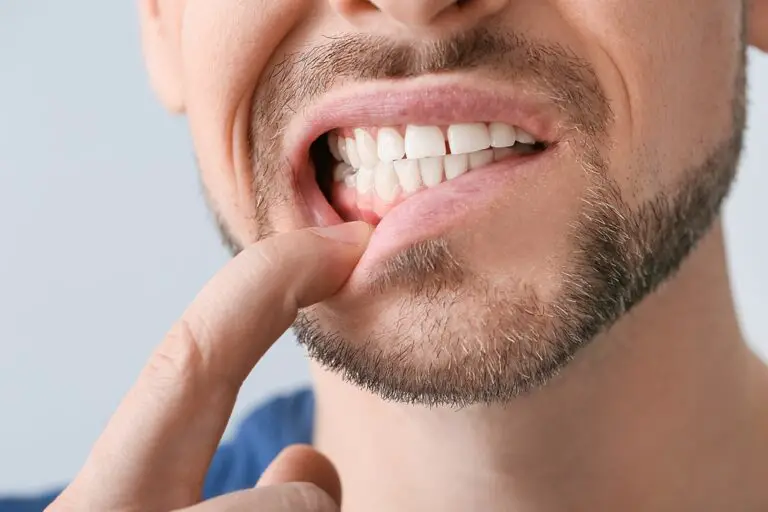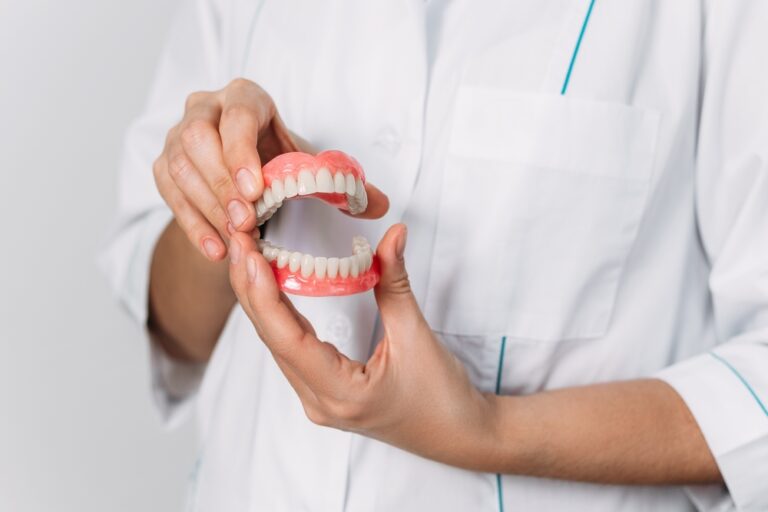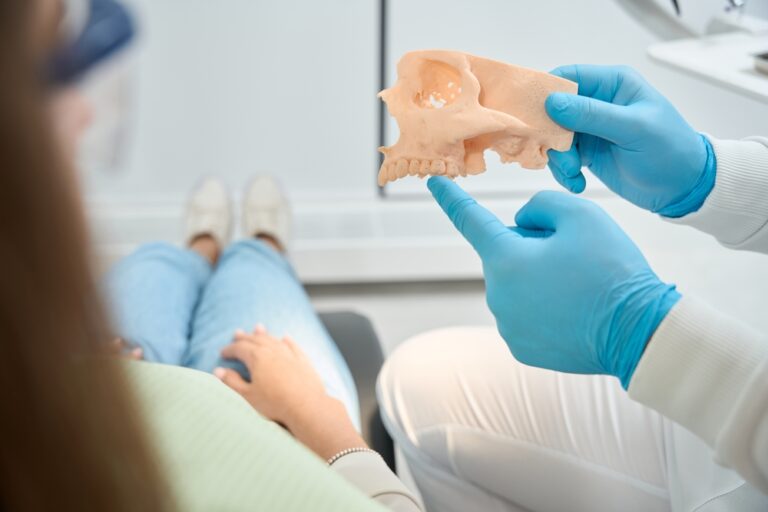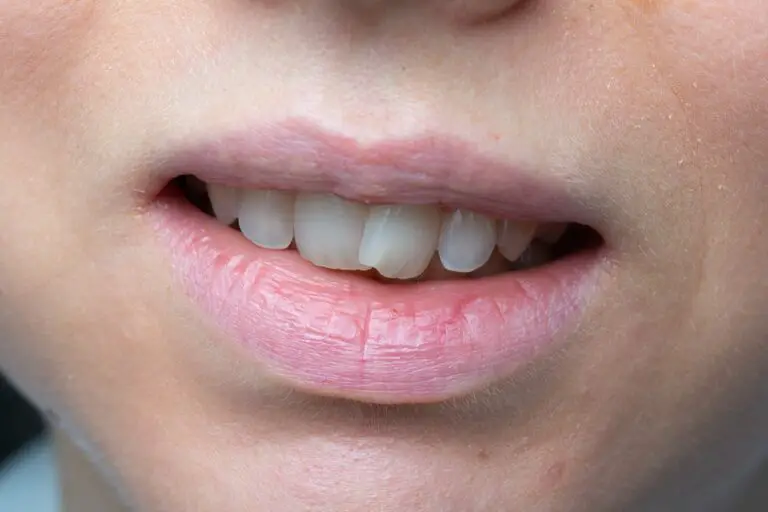Do you feel like something is stuck in your gums, but you can’t find anything? It’s a common and uncomfortable sensation that many people experience. It’s important to understand the causes of this feeling and how to address it.
Gums are an essential part of oral health, and they protect the teeth and bone that support them. However, they are also vulnerable to irritation and infection. There are several reasons why your gums might feel like something is stuck in them, from minor issues like food particles to more severe conditions like periodontitis.
In this article, we will explore the common causes of gum discomfort, the effects of oral hygiene, medical conditions that can affect your gums, and when to seek medical help. We will also answer some frequently asked questions about gum health. By the end of this article, you will have a better understanding of why your gums might feel like something is stuck and what you can do about it.
Key Takeaways
- Gum discomfort can be caused by a variety of factors, from food particles to periodontitis.
- Maintaining good oral hygiene is essential for preventing gum issues.
- If you experience persistent or severe gum discomfort, it’s important to seek medical help.
Understanding Gums
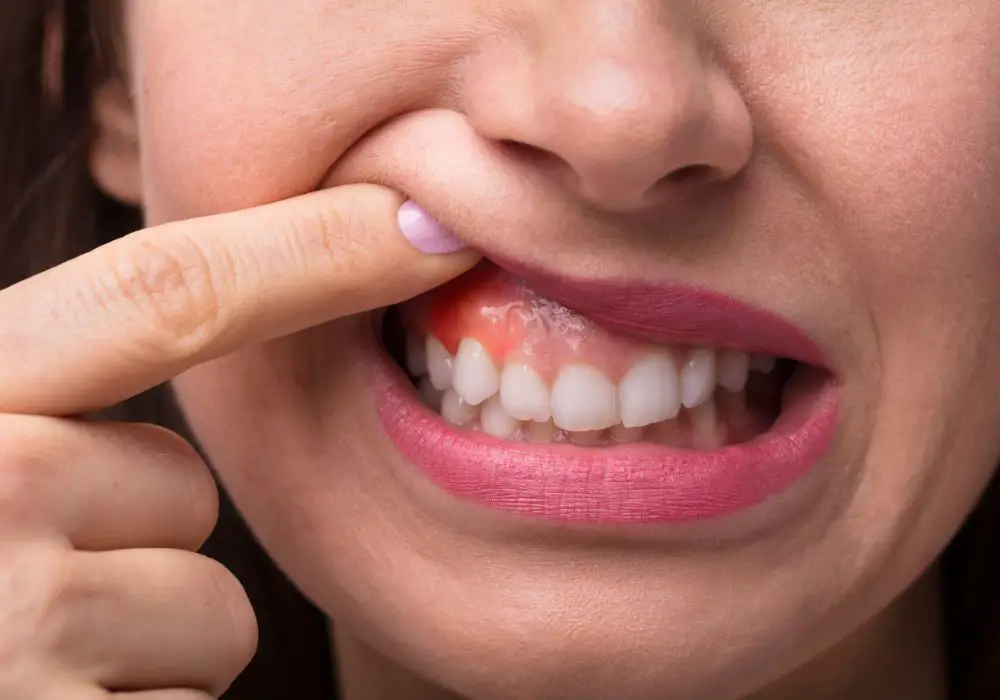
Anatomy of Gums
Gums, also known as gingiva, are the pinkish-red tissue that surrounds and supports the teeth. They are made up of two main layers: the outer layer of oral mucosa and the inner layer of connective tissue. The oral mucosa layer is the thin, moist layer that lines the inside of the mouth. The connective tissue layer is thicker and contains blood vessels, nerves, and collagen fibers that support the teeth.
The gums have three main parts: the free gingiva, the attached gingiva, and the gingival sulcus. The free gingiva is the part of the gums that surrounds the tooth and is not attached to the tooth. The attached gingiva is the part of the gums that is firmly attached to the tooth and the underlying bone. The gingival sulcus is the small space between the tooth and the gums.
Function of Gums
The gums play an important role in maintaining oral health. They protect the teeth and underlying bone from harmful bacteria and other pathogens. The gums also help to anchor the teeth in place and provide a tight seal around the teeth to prevent food particles and bacteria from getting trapped between the teeth and gums.
Healthy gums are firm, pink, and do not bleed when brushed or flossed. However, when the gums become inflamed or infected, they can become red, swollen, and bleed easily. This can be a sign of gum disease, which can lead to tooth loss if left untreated.
In conclusion, understanding the anatomy and function of gums is important for maintaining good oral health. Regular brushing, flossing, and dental checkups can help to keep the gums healthy and prevent gum disease.
Common Causes of Discomfort
If you feel like something is stuck in your gums, it could be due to various reasons. Here are some common causes of discomfort that you may experience:
Food Debris
When you eat, small food particles can get lodged between your teeth and gums. If not removed promptly, they can cause irritation and discomfort. Flossing and brushing regularly can help prevent food debris from getting stuck in your gums.
Gum Disease
Gum disease, also known as periodontal disease, is a common cause of discomfort in the gums. It is caused by the buildup of plaque and tartar on the teeth, which can lead to inflammation and infection of the gums. Symptoms of gum disease include red, swollen, and bleeding gums, as well as bad breath.
Oral Infections
Oral infections, such as abscesses or ulcers, can also cause discomfort in the gums. These infections can be caused by bacteria or viruses and can lead to pain, swelling, and redness in the gums. If you suspect that you have an oral infection, it is important to see a dentist or doctor for treatment.
Overall, if you are experiencing discomfort in your gums, it is important to seek professional dental care. Your dentist can help determine the underlying cause of your symptoms and recommend an appropriate treatment plan.
Effects of Oral Hygiene
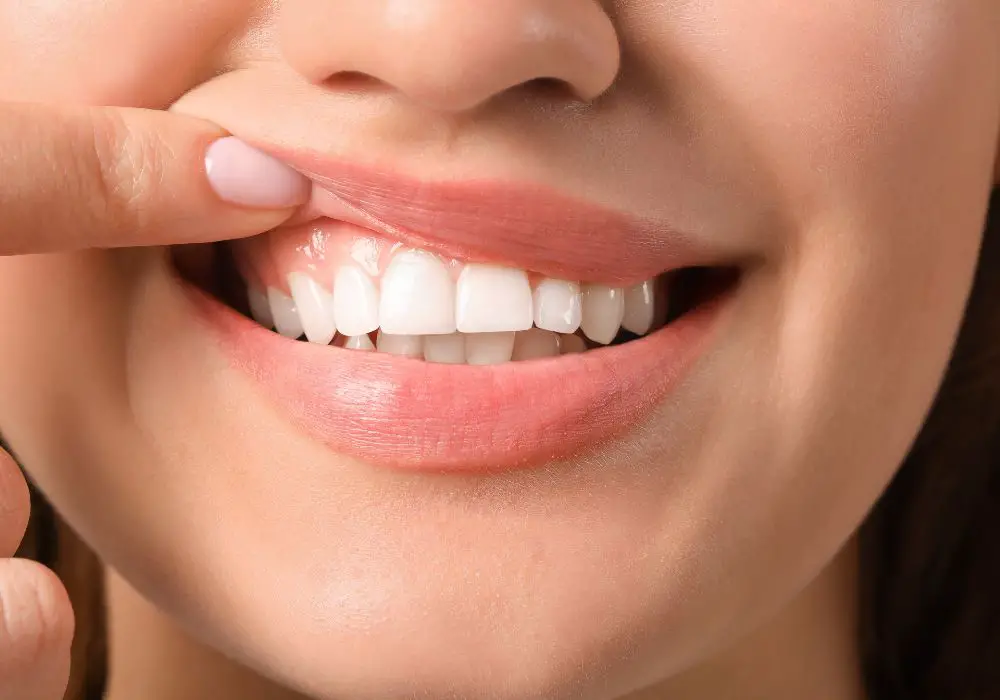
Maintaining good oral hygiene is essential to keep your gums and teeth healthy. Poor oral hygiene can lead to gum diseases and other oral problems. Here are some of the effects of oral hygiene on your gums:
Importance of Brushing
Brushing your teeth twice a day is crucial to prevent the buildup of plaque and bacteria in your mouth. Plaque is a sticky film that forms on your teeth and gums. It contains bacteria that can cause gum diseases and tooth decay. Brushing your teeth helps to remove plaque and prevent its buildup.
Using a fluoride toothpaste can also help to strengthen your tooth enamel and prevent cavities. It is recommended to brush your teeth for at least two minutes each time.
Role of Flossing
Flossing is another essential part of good oral hygiene. It helps to remove food particles and plaque from between your teeth and along the gumline. Flossing can also help to prevent gum diseases and bad breath.
It is recommended to floss at least once a day. You can use dental floss or interdental brushes to clean between your teeth. Be gentle while flossing to avoid damaging your gums.
By maintaining good oral hygiene practices, you can keep your gums healthy and prevent gum diseases. Regular dental checkups and cleanings can also help to detect and prevent oral problems.
Medical Conditions
There are various medical conditions that can cause your gums to feel like something is stuck. Here are a few of them:
Vitamin Deficiency
A deficiency in certain vitamins, such as vitamin C, can lead to gum problems. This is because vitamin C is essential for healthy gums. If you don’t get enough vitamin C, your gums may become inflamed and bleed easily. Other symptoms of vitamin C deficiency include fatigue, muscle weakness, and joint and muscle aches.
To prevent vitamin C deficiency, make sure you eat a diet that’s rich in fruits and vegetables. Some good sources of vitamin C include oranges, strawberries, broccoli, and bell peppers.
Hormonal Changes
Hormonal changes can also affect your gums. For example, many women experience gum problems during pregnancy. This is because hormonal changes can make your gums more sensitive and prone to inflammation.
If you’re pregnant, it’s important to take good care of your teeth and gums. Make sure you brush and floss regularly, and see your dentist for regular checkups.
In addition to pregnancy, hormonal changes related to menstruation and menopause can also affect your gums. If you notice any changes in your gums during these times, talk to your dentist or doctor. They may be able to recommend treatments to help alleviate your symptoms.
Dental Procedures
If you have recently undergone a dental procedure, it is possible that a bone spur or a sharp piece of bone may have become lodged in your gums. This can cause discomfort and the feeling of something being stuck in your gums.
Orthodontic Treatments
Orthodontic treatments such as braces or retainers can sometimes cause discomfort and irritation to the gums. This can lead to the feeling of something being stuck in the gums. It is important to maintain good oral hygiene during orthodontic treatment to prevent gum irritation and discomfort.
Dental Surgeries
Dental surgeries such as tooth extractions or gum surgeries can also cause discomfort and the feeling of something being stuck in the gums. In some cases, a bone spur may develop after a dental surgery. It is important to follow your dentist’s post-operative instructions to ensure proper healing and to minimize the risk of complications.
If you are experiencing discomfort or the feeling of something being stuck in your gums after a dental procedure, it is important to contact your dentist for an evaluation. Your dentist can determine the cause of your discomfort and recommend appropriate treatment options.
When to Seek Medical Help
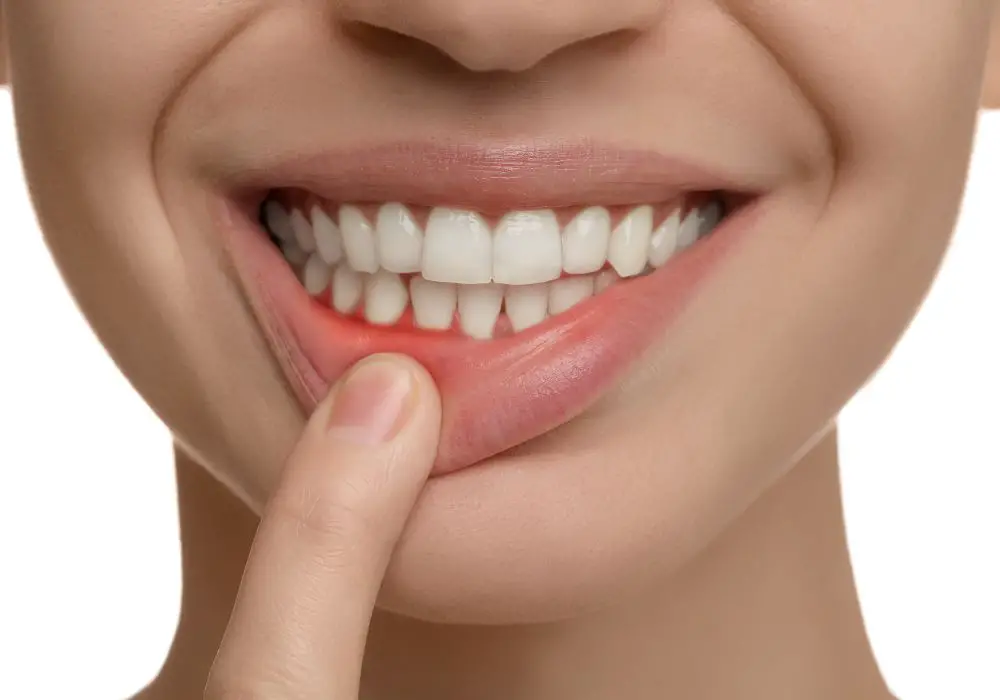
If you experience gum discomfort or feel like something is stuck in your gums, it is important to pay attention to the symptoms and seek medical help if necessary. Here are some symptoms to watch for and when to consult a dentist.
Symptoms to Watch
If you experience any of the following symptoms, it is important to seek medical attention:
- Pain or discomfort in your gums
- Bleeding gums
- Swollen or red gums
- Bad breath
- Receding gums
- Loose teeth
- Changes in your bite
These symptoms could be indicative of gum disease, infection, or other dental issues. It is important to address these symptoms as soon as possible to prevent further damage to your teeth and gums.
Consulting a Dentist
If you experience any of the symptoms listed above, it is important to schedule an appointment with your dentist. Your dentist can perform an examination and determine the cause of your symptoms. They may also recommend a treatment plan to address the issue.
If your symptoms are severe or if you experience sudden, intense pain, it is important to seek emergency dental care. Delaying treatment can lead to further complications and may require more extensive treatment in the future.
In general, it is recommended to schedule regular dental check-ups to prevent dental issues from developing in the first place. Your dentist can provide guidance on how often you should schedule check-ups based on your individual needs and risk factors.
Remember, taking care of your teeth and gums is an important part of maintaining your overall health. If you experience any symptoms or concerns, don’t hesitate to seek medical attention.
Frequently Asked Questions
How can I remove food stuck under my gums?
You can try using dental floss or an interdental brush to remove the food particles. Gently slide the floss or brush between your teeth and move it back and forth to dislodge the food. If the food is still stuck, you can try rinsing your mouth with warm salt water or using an oral irrigator to flush it out.
What are some causes of feeling like something is stuck in my gums?
There are several possible causes, including gum disease, dental abscess, tooth decay, or a foreign object stuck in your gums. It’s important to see a dentist if the feeling persists or is accompanied by other symptoms.
Is it normal to have food stuck in your gums for days?
No, it’s not normal to have food stuck in your gums for days. If left untreated, the food particles can lead to gum disease or tooth decay. Try to remove the food as soon as possible using dental floss or an interdental brush.
What can I do if I can’t get something out of my teeth with floss?
If flossing doesn’t work, you can try using a toothpick or a water flosser to remove the food particles. Be careful not to damage your gums or teeth while doing so.
Can food stuck in teeth dissolve on its own?
No, food particles cannot dissolve on their own. They need to be physically removed using dental floss, an interdental brush, or other dental tools.
What could be causing the sensation of something moving in my tooth?
The sensation of something moving in your tooth could be a sign of tooth decay or a dental abscess. It’s important to see a dentist as soon as possible to prevent further damage to your teeth and gums.


